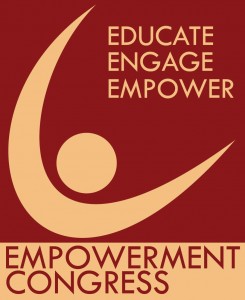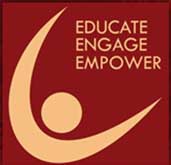Presented by the Empowerment Congress in partnership with the W.K. Kellogg Foundation
- Leadership Institute Planning Team
- Schedule of Events
- Participant Quotes
- Article: ECLI Leaders Work to Change Their Communities
- Recommended Reading
- Empowerment Congress Presentation (PDF format)
- Mental Health Committee White Paper (PDF format)

Program Description and Objectives
The Empowerment Congress Leadership Institute (ECLI) utilizes the dynamic model of civic and community engagement pioneered by the Empowerment Congress to provide participants both theoretical and practical strategies to improve community and public policy outcomes. The Empowerment Congress’ distinctive and deliberate model of civic engagement is built on the core principles of participatory democracy, reciprocal accountability, and intentional civility. The ECLI will bring together diverse teams from the County of Los Angeles’ Second Supervisorial District comprised of civic and business leaders, and other community stakeholders.
Participants will learn from and engage with the Empowerment Congress, be exposed to existing research, and use this experience to help expand their leadership and team building skills and understanding of the Empowerment Congress’ success at effective civic and community engagement. We will bring significant depth to the Institute by providing opportunities for participants to broaden and deepen their capacity to engage their local communities comprised of populations that are diverse ethnically, culturally, and socially. The goal of the EC Leadership Institute is to support elected officials and community stakeholders around the country in developing structures for reciprocal and accountable relationships that will help advance community outcomes and impact public policy.
After participating in engaging symposia and lectures with civic engagement and leadership experts, scholars, and organizations, participants will:
- develop skills needed to collaborate and build community within and across teams and geographical boundaries.
- understand the roles of elected officials and various governmental jurisdictions in impacting public policy and quality of life.
- build on leadership skills required to mobilize constituencies and engage with elected officials around key policy issues.
- collaborate and share experiences with, and develop a network of, local peers engaged in civic and community collaborations, both during and subsequent to the Institute.
- broaden and deepen their capacity to engage communities with populations that are ethnically, culturally, and socially diverse.

